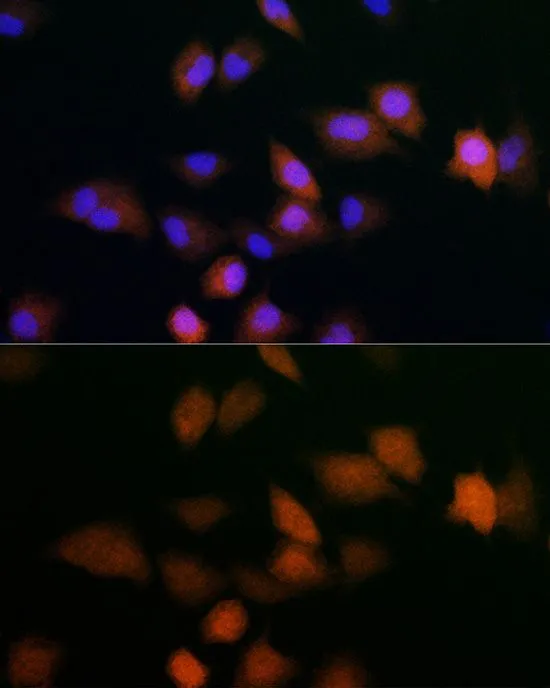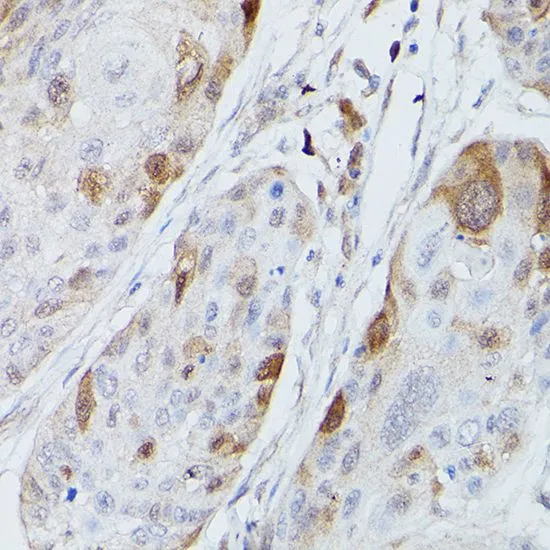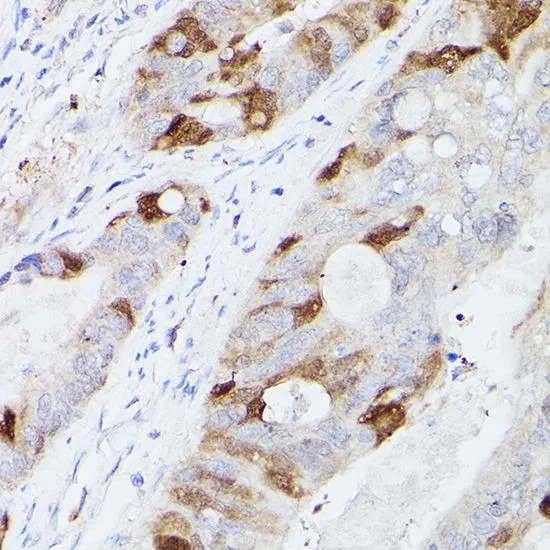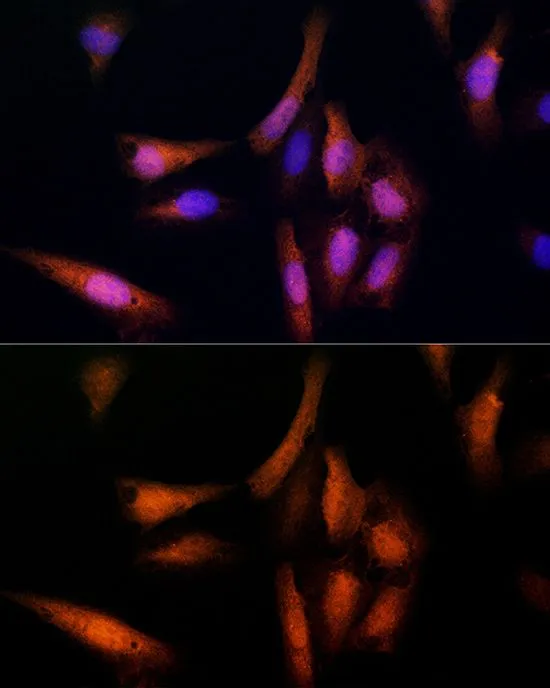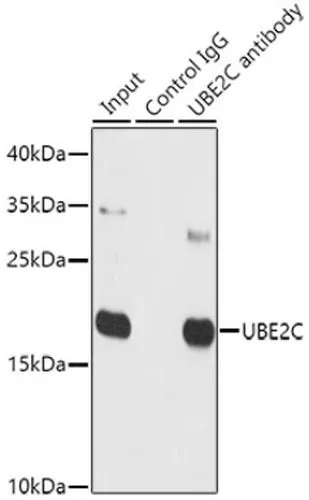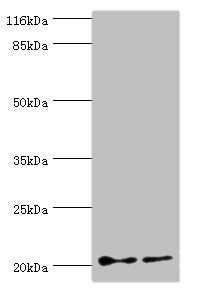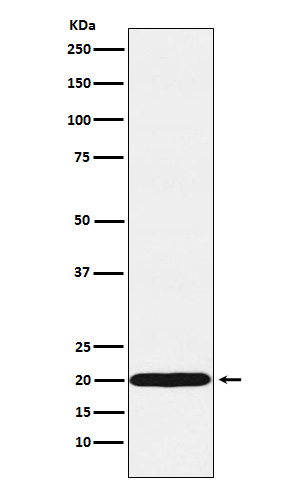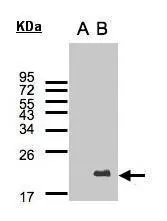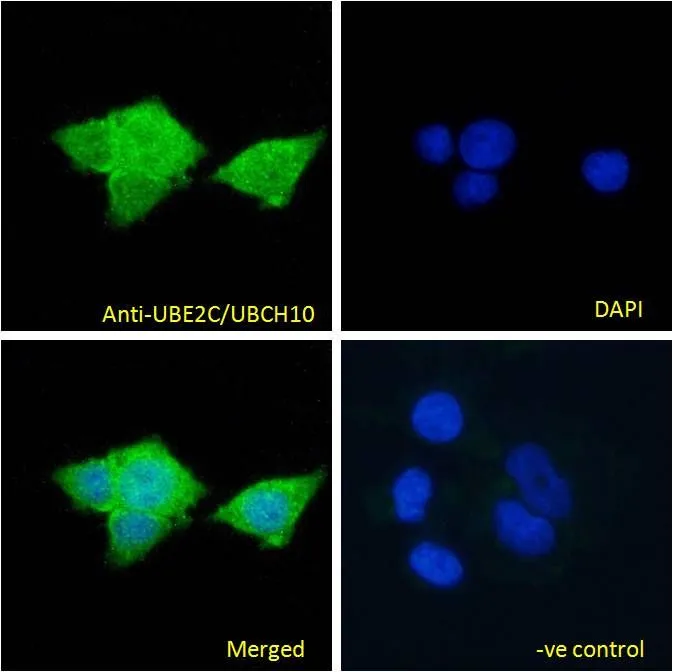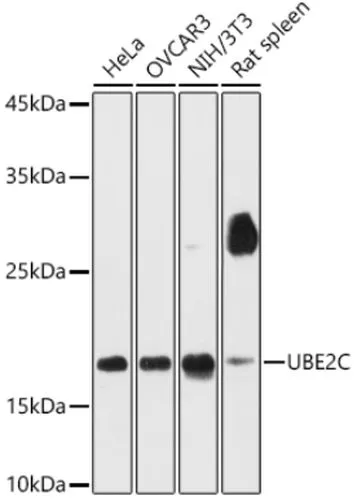
WB analysis of various sample lysates using GTX33567 UBE2C antibody. Dilution : 1:1000 Loading : 25μg per lane
UBE2C antibody
GTX33567
ApplicationsImmunoFluorescence, ImmunoPrecipitation, Western Blot, ImmunoCytoChemistry, ImmunoHistoChemistry, ImmunoHistoChemistry Paraffin
Product group Antibodies
ReactivityHuman, Mouse, Rat
TargetUBE2C
Overview
- SupplierGeneTex
- Product NameUBE2C antibody
- Delivery Days Customer9
- Application Supplier NoteWB: 1:500 - 1:2000. ICC/IF: 1:50 - 1:100. IHC-P: 1:50 - 1:200. IP: 1:20 - 1:50. *Optimal dilutions/concentrations should be determined by the researcher.Not tested in other applications.
- ApplicationsImmunoFluorescence, ImmunoPrecipitation, Western Blot, ImmunoCytoChemistry, ImmunoHistoChemistry, ImmunoHistoChemistry Paraffin
- CertificationResearch Use Only
- ClonalityPolyclonal
- ConjugateUnconjugated
- Gene ID11065
- Target nameUBE2C
- Target descriptionubiquitin conjugating enzyme E2 C
- Target synonymsUBCH10, dJ447F3.2, ubiquitin-conjugating enzyme E2 C, (E3-independent) E2 ubiquitin-conjugating enzyme C, E2 ubiquitin-conjugating enzyme C, cyclin-selective ubiquitin carrier protein, mitotic-specific ubiquitin-conjugating enzyme, ubiquitin conjugating enzyme E2C, ubiquitin-protein ligase C
- HostRabbit
- IsotypeIgG
- Protein IDO00762
- Protein NameUbiquitin-conjugating enzyme E2 C
- Scientific DescriptionThe modification of proteins with ubiquitin is an important cellular mechanism for targeting abnormal or short-lived proteins for degradation. Ubiquitination involves at least three classes of enzymes: ubiquitin-activating enzymes, ubiquitin-conjugating enzymes, and ubiquitin-protein ligases. This gene encodes a member of the E2 ubiquitin-conjugating enzyme family. The encoded protein is required for the destruction of mitotic cyclins and for cell cycle progression, and may be involved in cancer progression. Multiple transcript variants encoding different isoforms have been found for this gene. Pseudogenes of this gene have been defined on chromosomes 4, 14, 15, 18, and 19. [provided by RefSeq, Aug 2013]
- ReactivityHuman, Mouse, Rat
- Storage Instruction-20°C or -80°C,2°C to 8°C
- UNSPSC41116161

